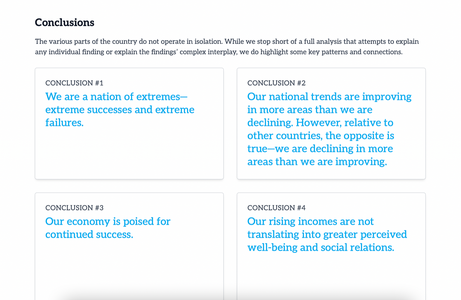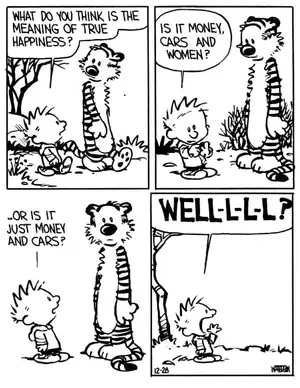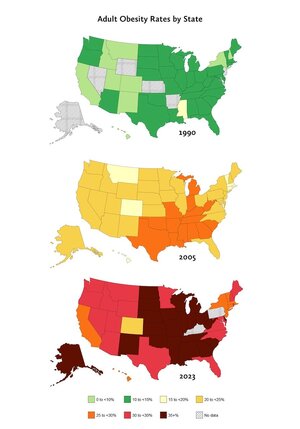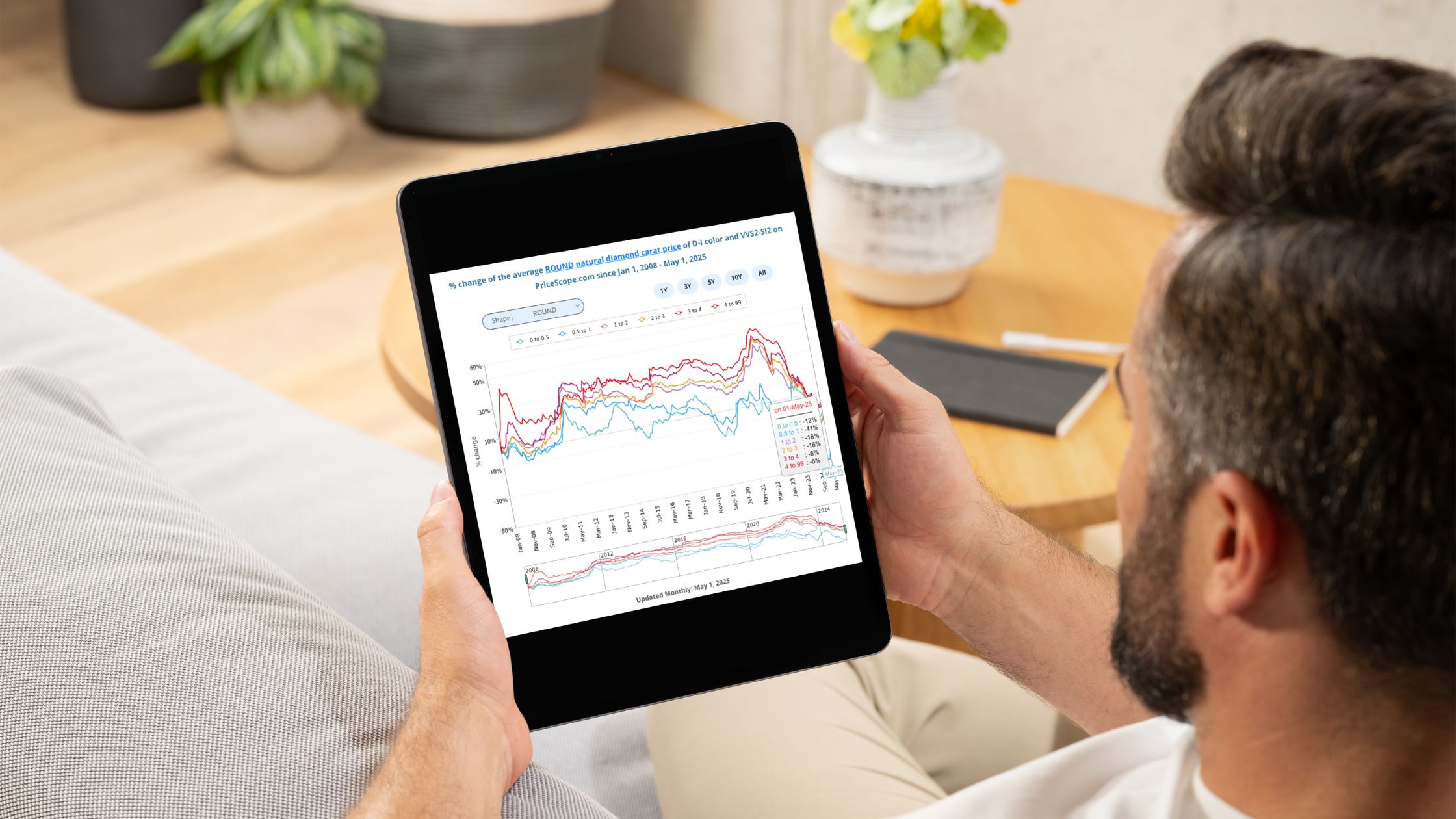- Joined
- Jun 8, 2008
- Messages
- 56,284

Home
"
Wealthy and unhappy
Like many other Americans, Douglas Harris — an economist at Tulane University — has found himself worrying about the quality of public discourse. It is full of misinformation, cynicism and polarization. Americans seem irrationally angry about the country’s condition and can’t even seem to agree on basic facts.Harris decided to do something about the situation in 2021. He recruited a politically diverse committee of experts to study the true state of the nation. He persuaded 13 other scholars — who together have advised each of the past five presidents, stretching back to Bill Clinton — to do so. They released their national report card yesterday.
It finds that the U.S. economy is performing better than any of its peers and pulling away from the economies of Europe and Japan. The U.S. remains far richer, per person, than China or India.
[td]
 [/td]
[/td]

[td width="600px"][/td]
Sources: State of the Nation report, World Bank
[td]
 [/td]
[/td]

[td width="600px"][/td]
Source: State of the Nation report, UNICEF, Institute for Health Metrics and Evaluation, World Bank, Gallup World Poll
In the end, the experts decided that 37 measures were important enough to list, including those covering economic output, employment, income inequality, life expectancy, environmental conditions, depression, community involvement, press freedom and voter turnout. For a measure to make the list, roughly 75 percent of the experts had to agree on its inclusion.
The group also commissioned a poll and found that a large majority of Americans agreed about the importance of most topics. The main exceptions were community involvement and environmental conditions, which only a slight majority of people thought were crucial gauges of our national well-being.
In this article by my colleague Ashley Wu and me, you’ll find more charts, as well as thoughts from the committee members about why economic performance seems to have become unmoored from health and happiness. As Birzer says, “It seems like the central question of modernity.”
"






300x240.png)